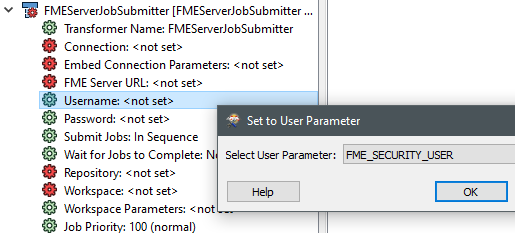Hi,
In my FME Server, I published a "master" workspace with an admin user called psl. This master process basically invokes another FME workspaces through a FMEJobsubmitter.

When I run this process on the FME Server, the username is logged correctly only for the master process, but for the child process the username that is logged is psl.

How can I do that it logs the correct user for the child processes too?




